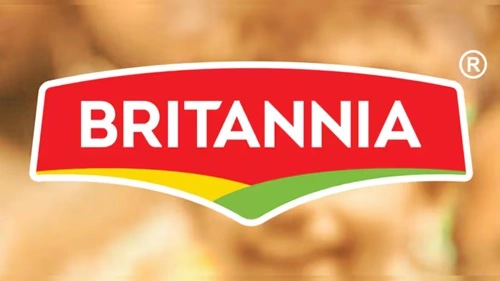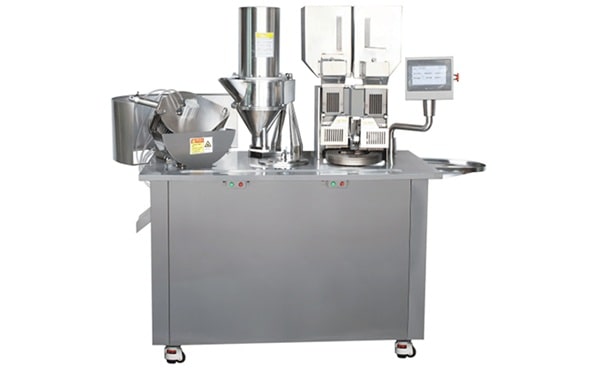Britannia Industries, one of India’s most trusted and recognized food brands, has dominated the Indian FMCG sector for decades. Known for its quality products in categories like biscuits, dairy, bread, and cakes, Britannia has built a strong market presence and established itself as a household name. As part of the Wadia Group, Britannia has grown steadily through continuous innovation, a strong distribution network, and an expanding portfolio that caters to evolving consumer preferences. However, the company also faces challenges such as intense competition, raw material price fluctuations, and growing demand for healthier options. In this SWOT analysis, we explore Britannia’s strengths, weaknesses, opportunities, and threats, along with insights into its future outlook.

Strengths
1. Strong Brand Equity and Market Leadership: Britannia is synonymous with quality and trust in India, especially in the biscuits and bakery segments. Its flagship brand, Good Day, along with other popular offerings like Marie Gold, Tiger, and NutriChoice, enjoy a high level of consumer trust. Britannia’s reputation as a quality-centric brand has made it a market leader in the biscuits category, where it holds a significant market share, giving it a competitive edge.
2. Diverse Product Portfolio: Britannia has a wide-ranging product portfolio that spans biscuits, cakes, dairy, bread, rusk, and other snacks. This product diversity enables the company to cater to various consumer segments and reach a broad customer base. With offerings in both premium and budget-friendly categories, Britannia can appeal to a wide audience, including health-conscious consumers with its NutriChoice range and indulgence-seeking consumers with brands like Treat and Bourbon.
3. Strong Distribution Network and Pan-India Reach: Britannia’s extensive distribution network covers urban, semi-urban, and rural India, ensuring its products are available in even the remotest areas. The company’s efficient supply chain has helped it maintain a strong presence across all regions, allowing it to serve a diverse and growing consumer base. Britannia has also leveraged digital technology to streamline its supply chain, further enhancing its distribution capabilities.
4. Consistent Focus on Product Innovation: Britannia has a track record of launching innovative products to cater to changing consumer preferences. Its strategy of introducing new flavors, healthier options, and premium products has kept the brand relevant and appealing to younger and more health-conscious demographics. The company’s ability to adapt to market trends and introduce products that align with current consumer preferences is a key strength.
5. Expanding Dairy Segment: Britannia’s foray into the dairy segment has been promising, with products like cheese, curd, milk, and yogurt. The dairy business not only provides Britannia with an additional revenue stream but also leverages the company’s strong brand reputation. Dairy is a growing sector in India, and Britannia’s focus on expanding its dairy portfolio enhances its position in the market while diversifying its revenue sources.
Weaknesses
1. Heavy Dependence on Biscuits Segment: Despite its diversified portfolio, Britannia’s revenue heavily relies on the biscuits segment, which contributes a significant portion of its total sales. This dependency makes the company vulnerable to any downturns in the biscuits category, such as price wars or changing consumer preferences toward healthier snacks. Reliance on a single category also limits Britannia’s flexibility in the face of market shifts.
2. Price Sensitivity and Impact on Profit Margins: India’s FMCG market is highly price-sensitive, particularly in the food segment, where consumers are always looking for affordable options. The rising costs of raw materials, such as wheat, sugar, and milk, can impact Britannia’s profit margins, as passing on these costs to price-sensitive consumers can lead to a loss of market share. The company’s ability to absorb costs and maintain margins while staying competitive is a constant challenge.
3. Limited International Presence: While Britannia is a dominant player in India, its international footprint is relatively limited compared to some of its competitors. Although the company has made efforts to expand into select overseas markets, particularly in the Middle East, its presence outside India is still in its nascent stages. This limited global reach means Britannia misses out on growth opportunities in other high-potential markets.
4. Lack of Focus on Health-Oriented Products: While Britannia has launched some healthier product options under its NutriChoice brand, it still lags behind some competitors in offering a wide range of health-focused products. As consumers become increasingly health-conscious and shift towards low-sugar, high-protein, and organic options, Britannia’s product portfolio will need to adapt to capture this growing demand. Failure to expand its health-oriented offerings could limit its appeal among health-focused consumers.
Opportunities
1. Rising Demand for Healthy and Functional Foods: The growing health consciousness among Indian consumers presents a major opportunity for Britannia. Consumers are increasingly seeking healthier alternatives with low sugar, high fiber, and added nutrients. By expanding its health-oriented product line and introducing products in categories like gluten-free, vegan, or organic, Britannia can capture a larger share of this high-demand segment and attract more health-conscious consumers.
2. Growth Potential in Rural Markets: With a large portion of India’s population residing in rural areas, the demand for affordable and accessible food products in these regions is on the rise. Britannia’s strong distribution network positions it well to capitalize on this demand. By tailoring its product offerings and packaging to meet the needs of rural consumers, Britannia can strengthen its presence in these markets and drive sales growth.
3. Expanding the Dairy and Ready-to-Eat Segments: India’s dairy industry is witnessing significant growth, driven by rising incomes, urbanization, and changing dietary habits. Britannia’s dairy segment has been expanding, and the company can leverage this momentum by introducing new products in categories such as yogurt, cheese, and value-added dairy drinks. Additionally, with the increasing demand for convenient meal solutions, Britannia has an opportunity to enter the ready-to-eat (RTE) segment, providing products that cater to the growing preference for convenience.
4. Opportunities in International Markets: With the Indian diaspora spread across the world and rising interest in Indian food products, there is strong demand for Indian brands in international markets. Britannia can explore expansion in regions like North America, Europe, and Southeast Asia, where it can appeal to both Indian expatriates and local consumers interested in international flavors. Growing its global footprint could provide Britannia with additional revenue streams and reduce its dependency on the Indian market.
5. Digital Transformation and E-commerce Growth: With the rise of e-commerce in India, FMCG brands are increasingly focusing on digital channels to reach consumers. Britannia’s presence in online retail platforms can enhance its reach, particularly among urban and millennial customers who prefer online shopping. By strengthening its e-commerce strategy, Britannia can increase its market penetration and capture new customer segments, enhancing its revenue potential.
Threats
1. Intense Competition in the FMCG Sector: The Indian FMCG market is highly competitive, with local and international players vying for market share. Companies like Parle, ITC, Nestlé, and HUL are all direct competitors in categories such as biscuits, dairy, and snacks. The increasing presence of regional brands and private labels has further intensified competition, which could impact Britannia’s market share if it does not continually innovate and differentiate its products.
2. Rising Raw Material Costs: Britannia is highly sensitive to fluctuations in the prices of raw materials like wheat, sugar, and dairy, which form the core ingredients of its products. Global supply chain disruptions, inflationary pressures, and adverse climatic conditions can lead to price hikes, directly affecting production costs. If raw material prices rise significantly, it could impact Britannia’s profitability and force it to raise prices, potentially impacting demand.
3. Changing Consumer Preferences and Health Concerns: As consumers become more health-conscious, they are seeking products with less sugar, healthier ingredients, and natural additives. This trend poses a threat to Britannia’s traditional product lines, particularly its sweet biscuits and bakery items, which may face reduced demand if healthier options are not available. Failure to adapt to these changing preferences could lead to a decline in market share among health-focused consumers.
4. Regulatory Challenges and Food Safety Standards: The FMCG sector is subject to stringent food safety and regulatory standards in India. The Food Safety and Standards Authority of India (FSSAI) continuously updates regulations, requiring companies to comply with new labeling, safety, and quality standards. Any non-compliance or lapses in food safety can damage Britannia’s brand reputation and result in penalties, impacting its credibility and bottom line.
5. Economic Slowdowns and Inflation: An economic slowdown or high inflation can reduce consumer spending power, especially for non-essential items. Biscuits, dairy products, and other snack items could be considered discretionary expenses, especially in lower-income segments. Prolonged inflation or economic downturns could impact consumer demand for packaged foods, putting pressure on Britannia’s sales and profitability.
Future Outlook
Britannia’s position as a leading FMCG brand in India remains strong, supported by its trusted brand, extensive distribution network, and product diversity. To sustain growth, the company must continue to innovate, expand its health-oriented and premium offerings, and tap into the growing rural and international markets. By adapting to evolving consumer preferences and investing in emerging segments like dairy and RTE products, Britannia can remain competitive amidst rising market challenges.
In conclusion, while Britannia enjoys numerous strengths, it must remain agile and responsive to market shifts, including changing health trends, raw material cost pressures, and intense competition. With a proactive approach to innovation and expansion, Britannia can build on its legacy of trust and quality, ensuring continued success in the dynamic FMCG landscape.

